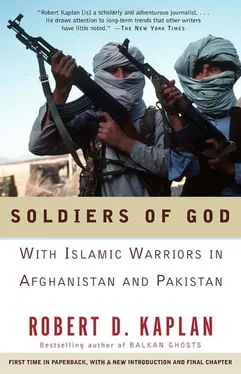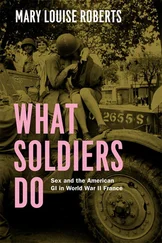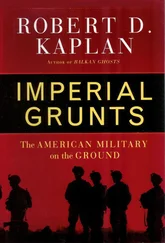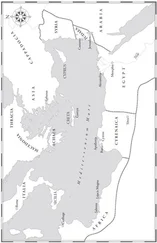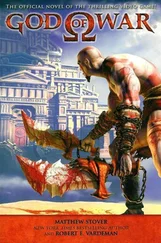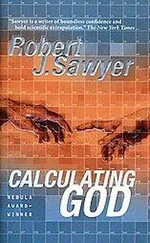Abdul Haq emitted no intimidating emotional charge. He threw up no barriers when he spoke. Because he wasn’t paranoid, you weren’t. With him, at least, you had the feeling that you were innocent until proved guilty.
2

A World of Men
WOMEN ARE OPPRESSED in all Moslem societies. But among the rural Pathans, women simply don’t exist. “They’re not even in the background. They’re just not there,” said a Pathan woman who left the Northwest Frontier to live in New Jersey. Here are three Pathan proverbs:
Women have no noses. They will eat shit.
One’s own mother and sister are disgusting.
Women belong in the house or in the grave.
You rarely see women on the Northwest Frontier or in Afghanistan; you do see moving tents with narrow holes for the eyes. Photographers who walked through minefields and sneaked into Soviet bases were afraid to take close-ups of Pathan women unless they were at least a hundred yards away and had a lens the size of a mortar — and provided not a single mujahid was looking. A close-up of a Pathan woman was more prized and difficult to get than a photograph of the undercarriage of an MI-24 helicopter gunship.
The only Pathan females I was ever allowed to see were all five years old and younger. Some of those girls were beautiful, with long, dark hair, sharp cheekbones, and doe eyes. What Pathan women look like when they are older is a secret that only Pathan men know.
A desert Arab, after he gets to know you, may invite you to his home, where you may steal a brief glance at his wife while she serves the food. A Pathan may also invite you to his home, but either he or another man will carry in the food that has been prepared in the women’s quarters. The food, in turn, is often the traveler’s only clue to the presence of a woman nearby. If the dish is relatively clean and the meal appetizing, it means there is a woman in the adjoining room who cooked it; if the food is inedible, a Pathan man did the deed.
A Pathan won’t even tell you the names of his wife and mother. To ask him is an insult. It would be like asking him to undress in front of a crowd. “Women are as private to a Pathan as his private parts,” a Pathan lawyer remarked to me. “Women are the holy of holies in a culture where the men act as the barricades.” The first time I interviewed Abdul Haq I made the mistake of asking him the names of the men and women in his family. The names of the men he told me. Concerning the women, he blushed and turned away. “I wish you wouldn’t ask such personal questions,” he said. I felt ridiculous for days afterward and worried whether he would agree to see me again.
The very existence of women in a Pathan’s life is an intimate secret, sacred to him but also a source of shame. Women threaten the facade of splendid male isolation that is central to a Pathan’s sense of self. A Pathan knows women are needed for procreation, but that is an unfortunate and embarrassing fact to him, and if he could change it, he would. In the Arab world and even in Iran, pregnant women are a common sight. Among the Pathans, one never sees them, for as soon as a woman’s womb begins to expand, she is locked away in the house.
After enough time on the Northwest Frontier you forgot about Pathan women altogether. They became invisible. You forgot that the mujahidin had wives and mothers, because you never saw them and the men encouraged you to forget. Only rarely did that other, hidden world break through to the surface, as when a colleague of mine asked Abdul Haq why he always kept his hair short. “Because my mother would slap my face if I grew my hair long,” he said, turning his head away, embarrassed.
In Kabul and the other cities of Afghanistan, many women were educated, held proper jobs, and didn’t hide themselves in black sheets. That was more because of Westernization than Communist influence. The mujahidin were, for the most part, backwoodsmen, and they suffered no threats or complexities in any of their personal relationships. They inhabited a self-contained world of men, a world of sharp cutouts, where women were held in contempt and the only sure touchstones of masculinity were bravery, the ability to endure physical pain, prowess with a rifle, and the length and thickness of one’s beard.
Men without beards were distrusted by the mujahidin. After all, women didn’t have beards — and neither, thought the mujahidin, did homosexuals. Nor did the Soviets and their Afghan Communist allies. Nor, for that matter, did the more modern, secular mujahidin within the seven-party resistance — the ones who drank Coca-Cola with journalists at the Pearl Continental Hotel and who were thought to do little of the fighting. In Peshawar, a beard meant credibility. It was striking how many Western journalists and relief workers who had contact with the guerrillas had beards. You would grow one before you arrived in Pakistan and shave it off as soon as you went back home. Once, when I shaved off my beard before leaving Peshawar, a mujahid friend laughed at me and said, “You look like a woman — no, like a Christian!”
The Pathans had no patience with the fine lines or ambiguities of other cultures. Either you were a man or you weren’t. It was a barren, stunted vision of life that made sense only under impossible conditions — which was why it flourished in the 1980s. In such a harsh and sterile social environment, male friendships took on an archetypal character, based on the bread and salt of absolute trust and the respect that could be earned only by bravery and the willingness to endure terrible physical hardships. It took a rare kind of individual to be able to pass through the crucible of Pathan friendship, especially if the friendship was with someone like Abdul Haq.
In a decade of war, a few foreign journalists managed to become close friends of Haq. They were the only people he trusted outside his family and guerrilla organization. Haq would often agree to meet a journalist only if he was recommended by one of Haq’s friends — getting close to the commander meant first getting close to the commander’s friends. By ordinary, conventional standards, none of the journalists whom Haq considered his friends were well-established professionals, and they lacked the clout of other media personages to whom he wouldn’t give the time of day. But Haq had his own ideas about what constituted a good newsman. To him, a good journalist was a strong, brave man who would regularly risk his life just as any fighter would. And when it came to spotting brave men, Abdul Haq was an expert and an uncanny judge of character.
John Wellesley Gunston did not have a beard, and he was the only journalist in Peshawar who wore a suit and tie to some appointments. Of average height and weight, Gunston had a smiling, cherubic countenance and the pale English complexion that seemed the epitome of youthful innocence and vulnerability. No matter whom he was with, his light brown eyes always sparkled with friendliness and enthusiasm. Gunston was one man in Peshawar who was not trying to prove himself: he possessed the absolute self-confidence that came from being born into a wealthy British colonial family and having served in the commonwealth’s best army units. Unlike other Westerners in Peshawar, who preferred hiking boots, khaki pants, and sleeveless military jackets from Banana Republic, Gunston was a real soldier and was therefore content to dress as a civilian. In the cowboy environment of the American Club bar, he always wore pressed slacks, a pin-striped shirt, and well-shined loafers.
Gunston was born in July 1962 in Nyasaland (later Malawi), where his father was the local British commissioner in the town of Blantyre. Gunston gave his address on business cards as the Cavalry & Guards Club, one of London’s few remaining gentlemen’s clubs, where officers, both serving and retired, of Her Majesty’s Footguards and the Cavalry can dine together in an atmosphere reminiscent of glories past. Gunston would use such exclusive surroundings to entertain visitors before showing them his personal library of over two thousand books on travel, photography, military history and tactics, and opera. He owned eighty books on Afghanistan alone. Having never finished secondary school, he considered himself self-taught. His room at Dean’s Hotel was always littered with good books, lying all over the tables, beds, even the floor. He had a particular affinity for Lord Byron and could recite sections of Don Juan and Childe Harold’s Pilgrimage by heart. Gunston was only twenty-five when I met him, yet he exuded an air of seasoned maturity of the sort that members of the British upper class display like a coat of arms. His passion for Byron may have been his only youthful affectation, but given everything else I knew about him, I never dismissed it as ridiculous.
Читать дальше
